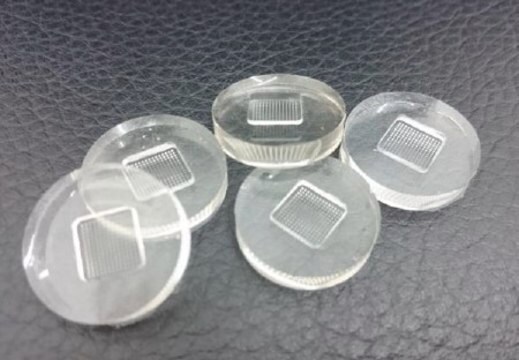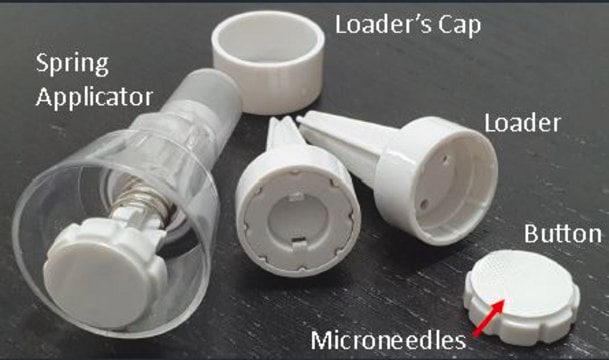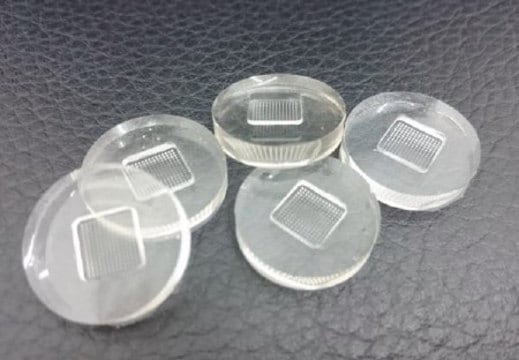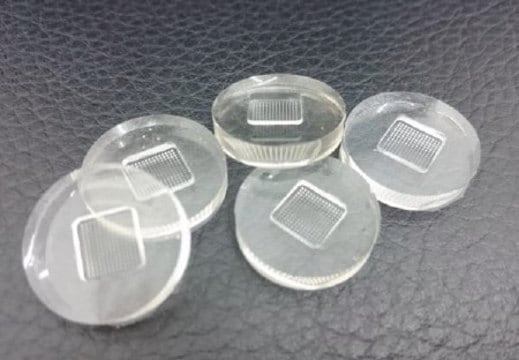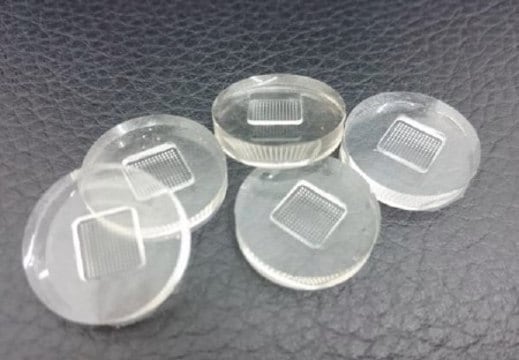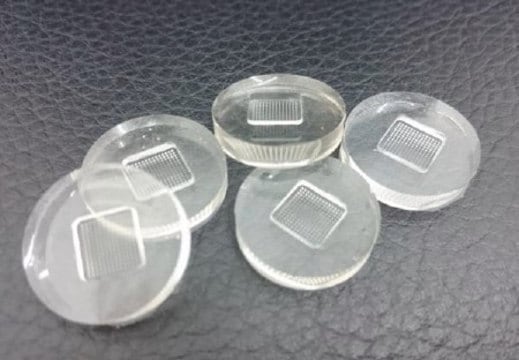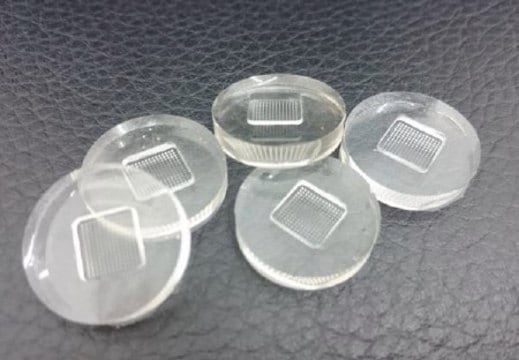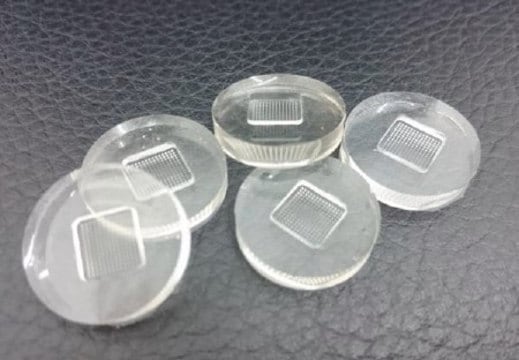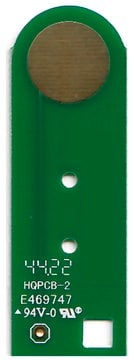Recommended Products
Related Categories
General description
Microneedles are a platform for transdermal drug delivery. The advantages of microneedles include the delivery of large molecules, painless and less invasive administration of the active pharmaceutical ingredient (API), ease of administration, and improved drug delivery including dose, delivery rate and efficacy. Microneedles are also effective for vaccine delivery due to the abundance of immune cells in the dermis.
The microneedle applicator set can be used with the microneedle templates to make and apply reproducible and high quality microneedle patches for a variety of therapeutics.
The microneedle applicator set can be used with the microneedle templates to make and apply reproducible and high quality microneedle patches for a variety of therapeutics.
Application
Transdermal delivery of a variety to therapeutics including:
- Nucleic acid delivery
- Vaccine delivery
- Protein or peptide delivery
- Small molecule delivery
Features and Benefits
The microneedle applicator set is specifically designed for applying microneedle patches on the skin. It uses a spring to provide consistent impact force. The transparent cone is engineered to fixate and stretch the skin for effective skin penetration by microneedles. Microneedle patches are affixed on the button, which will be loaded onto the applicator using a loader. The loader and its cap have vent holes to allow effective EO or steam sterilization.
Physical properties
Each set comes with:
- 1 standard spring applicator
- 1 button
- 1 loader
- 1 cap
- Dimensions: 21.5mm diameter x 43mm length
- Loadable patch area: Max. diameter 11mm
- Spring impact force: 1.6N (average)
- Biocompatible: Yes
- Autoclavable: Yes
Other Notes
Suggested instructions for use:
- Affix a microneedle patch on the surface of the button.
- Push the button into the loader with the microneedles facing inward and the keys facing outward.
- To load the button onto the bolt of the applicator, hold the loader and align its kits to fit into the holes of the bolt.
- Push the loader and bolt to cock the applicator, and turn the loader 90 degrees to lock the button into the bolt.
- Remove the loader to expose the microneedle patch. Applicator is ready to use.
related product
Product No.
Description
Pricing
Certificates of Analysis (COA)
Search for Certificates of Analysis (COA) by entering the products Lot/Batch Number. Lot and Batch Numbers can be found on a product’s label following the words ‘Lot’ or ‘Batch’.
Already Own This Product?
Find documentation for the products that you have recently purchased in the Document Library.
Ying Hao et al.
Journal of biomedical nanotechnology, 13(12), 1581-1597 (2018-03-02)
A microneedle (MN) is a micron-sized needle with a height of 10-2000 μm and a width of 10-50 μm, which can penetrate through the epidermis layer to dermal tissue directly without pain. Microneedles are widely used in transdermal drug delivery
Jie Xu et al.
Molecules (Basel, Switzerland), 26(19), 5912-5912 (2021-10-14)
A microneedle (MN) is a painless and minimally invasive drug delivery device initially developed in 1976. As microneedle technology evolves, microneedles with different shapes (cone and pyramid) and forms (solid, drug-coated, hollow, dissolvable and hydrogel-based microneedles) have been developed. The
Ziad Sartawi et al.
Journal of controlled release : official journal of the Controlled Release Society, 348, 186-205 (2022-06-07)
Microneedles are a rapidly developing method for the transdermal delivery of therapeutic compounds. All types of microneedles, whether solid, hollow, coated, or dissolving function by penetrating the stratum corneum layer of the skin producing a microchannel through which therapeutic agents
Ipshita Menon et al.
Micromachines, 12(4) (2021-05-01)
Transdermal vaccination route using biodegradable microneedles is a rapidly progressing field of research and applications. The fear of painful needles is one of the primary reasons most people avoid getting vaccinated. Therefore, developing an alternative pain-free method of vaccination using
Tejashree Waghule et al.
Biomedicine & pharmacotherapy = Biomedecine & pharmacotherapie, 109, 1249-1258 (2018-12-16)
The most widely used methods for transdermal administration of the drugs are hypodermic needles, topical creams, and transdermal patches. The effect of most of the therapeutic agents is limited due to the stratum corneum layer of the skin, which serves
Our team of scientists has experience in all areas of research including Life Science, Material Science, Chemical Synthesis, Chromatography, Analytical and many others.
Contact Technical Service